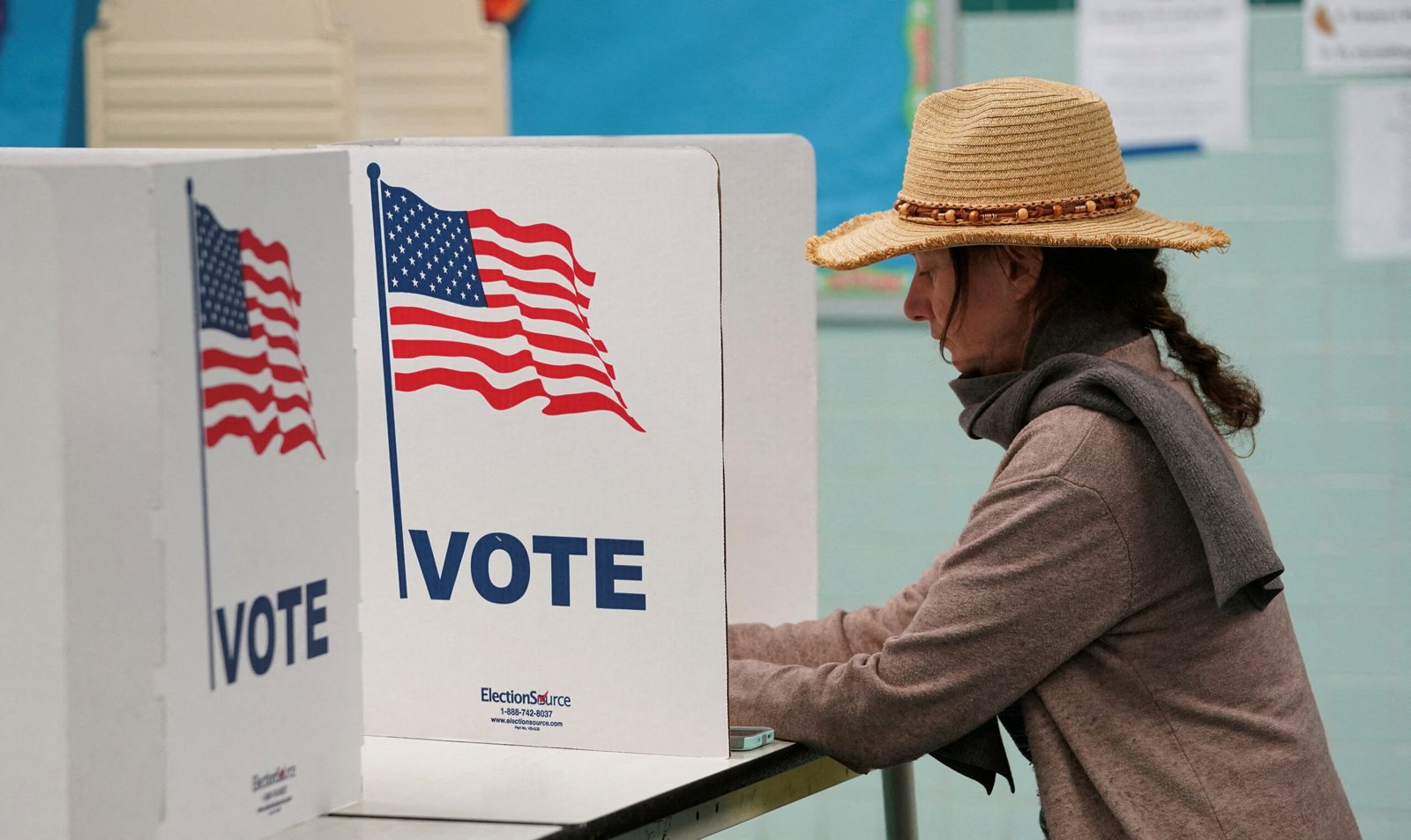An election contest news is a formal legal challenge that seeks to question and review the validity of election results. It is initiated when an individual, usually a losing candidate, a political party, or sometimes a concerned voter, believes that the election process was flawed or compromised in some significant way. These challenges can arise from various allegations, including misconduct by election officials, fraud involving the tampering of votes, errors in the counting process, or violations of election laws and regulations.
election contest news serve as a vital check and balance within the democratic process. They ensure that elections are conducted fairly and that every eligible vote is counted correctly. By providing a legal avenue for disputing election results, these contests help to uphold the integrity of the electoral system. They offer a mechanism for addressing grievances and correcting mistakes, which is essential for maintaining public trust in the democratic process.
Furthermore, election contests are a means to uphold democratic principles by allowing for the judicial review of election contest news practices. They provide a structured process through which the legality of election procedures can be examined, thereby reinforcing the rule of law. By resolving disputes, election contests help ensure that the outcomes of elections reflect the true will of the electorate. In essence, they act as a safeguard against corruption and errors, promoting fairness and transparency in the electoral process.
Why Do Election Contests Occur?
Election contests occur for several reasons, including but not limited to:
- Voter Fraud Allegations: Claims that ineligible voters cast ballots, voters voted multiple times, or that votes were manipulating.
- Procedural Errors: Mistakes made by election officials, such as improper handling of ballots, incorrect counting, or failure to follow legal protocols.
- Campaign Violations: Allegations of illegal campaign activities, such as undue influence or intimidation at polling places.
- Technological Failures: Issues related to electronic voting systems, including malfunctions or hacking.
How Are Election Contests Resolving?
Resolving an election contest involves a legal process where the validity of the election results is scrutinizing. This process typically includes:
- Filing a Petition: The contesting party must file a formal petition outlining the grounds for the contest.
- Evidence Collection: Both parties gather and present evidence supporting their claims or defense.
- Court Hearings: A court reviews the evidence, hears testimonies, and evaluates the legality of the election process.
- Judicial Decision: The court issues a ruling, which could confirm the election results, order a recount, or call for a new election.
What Are the Implications of Election Contests?
Election contests can have significant political, social, and legal implications:
- Political Impact: Contests can alter the outcome of an election, potentially changing the political landscape.
- Public Trust: Frequent or high-profile contests can erode public confidence in the electoral system.
- Legal Precedents: Court rulings on election contests can set important legal precedents for future elections.
How Can Voters Stay Informed About Election Contests?
Staying informed about election contests is crucial for voters who want to understand the integrity of the electoral process. Here are some methods to stay informed::
- Follow Credible News Sources: Regularly check reliable news outlets for updates on election contests and related legal proceedings.
- Engage with Election Officials: Attend public meetings, follow announcements from election boards, and read official statements.
- Participate in Public Forums: Engage in discussions, forums, and town halls to hear from various stakeholders and experts.
Read Also: What Time Is It in Maui? Tips for Managing Time Zones
What Can Be Done to Prevent Election Contests?
Preventing election contests involves several proactive measures to ensure a transparent and fair electoral process:
- Enhancing Voter Education: Educating voters about their rights and the voting process can reduce errors and misunderstandings.
- Strengthening Election Laws: Implementing robust legal frameworks to prevent fraud and misconduct.
- Improving Technology: Investing in secure and reliable voting systems to minimize technological failures.
- Training Election Officials: Providing comprehensive training for election workers to handle procedures correctly and efficiently.
What Role Do Political Parties Play in Election Contests?
Political parties are often at the forefront of election contests, playing several crucial roles:
Monitoring Elections: Political parties deploy observers to polling stations to monitor the voting process closely. These observers watch for any signs of irregularities, such as voter fraud, misconduct by election officials, or any breach of election laws. By having a presence at polling stations, parties help ensure the transparency and integrity of the election process.
Legal Advocacy: When an election contest arises, political parties provide essential legal support for their candidates. This support includes filing petitions, presenting evidence, and representing candidates in court. Parties often have legal teams ready to investigate alleged irregularities, gather necessary documentation, and argue the case effectively, ensuring that their candidates’ rights are upheld and any electoral disputes are resolved fairly.
Public Communication: Political parties play a vital role in communicating with the public and the media during election contests. They explain their stance on the contested election, providing updates and clarifying their reasons for challenging the results. This communication is essential for maintaining public trust and transparency, as it helps the electorate understand the basis of the contest and the importance of ensuring a fair electoral outcome.
How Do Election Contests Affect Candidates?
Election contests can have profound effects on candidates, impacting their political careers and personal lives:
- Campaign Continuation: Contested elections may extend campaign periods, requiring additional resources and energy.
- Reputation: The outcome of a contest can either bolster or damage a candidate’s reputation.
- Financial Costs: Legal battles can be expensive, adding financial strain to candidates and their campaigns.
What Are Some Notable Election Contests in History?
Throughout history, there have been several high-profile election contests that have shaped political landscapes:
- Bush v. Gore (2000): The U.S. presidential election where the Supreme Court halted a Florida recount, effectively deciding the election.
- Minnesota Senate Race (2008): The contest between Al Franken and Norm Coleman, resolved after months of legal battles and recounts.
- Kentucky Governor’s Race (2019): The closely contested race led to a legal challenge, with the incumbent initially refusing to concede.
What Legal Frameworks Govern Election Contests?
Election contests are governed by a combination of federal, state, and local laws:
- Federal Laws: Include statutes like the Voting Rights Act, which protect against discriminatory practices.
- State Laws: Each state has its own election codes and procedures for handling contests.
- Local Regulations: Local jurisdictions may have additional rules to address specific electoral concerns.
How Do Election Contests Influence Future Elections?
The outcomes of election contests can influence future elections in various ways:
- Policy Changes: Legal rulings may lead to changes in election laws and policies.
- Electoral Reforms: Contests often highlight the need for reforms, prompting legislative action.
- Voter Behavior: Publicized contests can affect voter turnout and engagement in subsequent elections.
What Are the Challenges in Resolving Election Contests?
Resolving election contests presents several challenges, including:
- Time Constraints: Legal processes must be conducting swiftly to ensure timely resolution before office terms begin.
- Complexity of Evidence: Collecting and analyzing extensive evidence can be complicating and resource-intensive.
- Public Perception: Managing public opinion and ensuring transparency is critical to maintaining trust in the process.
What Steps Can Be Taken to Improve Election Integrity?
Improving election integrity involves multiple strategies:
- Enhanced Security Measures: Implementing stronger safeguards against fraud and cyber threats.
- Transparency Initiatives: Ensuring open and transparent processes, from vote counting to legal proceedings.
- Public Engagement: Encouraging active participation and vigilance from the public to uphold electoral integrity.
Conclusion
Election contests are a vital component of democratic systems, providing a mechanism to challenge and rectify electoral irregularities. Understanding the causes, processes, and implications of these contests helps maintain the integrity and trust in the electoral process. By staying informed and engaging, voters can contributing to a fair and transparent election contest news system, ensuring that democratic principles are upheld.













